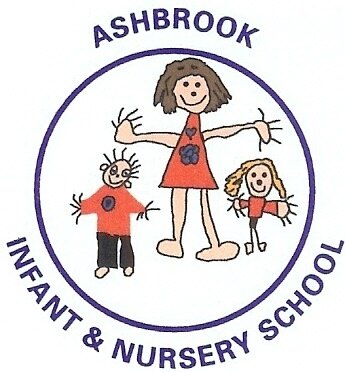Curriculum
At Ashbrook Infant and Nursery School,
We Care, We Learn, and We Have Fun.
This is the basis through which our curriculum is planned and delivered.
Intent
We believe that all children should have the opportunity to care for the world and each other, learn together and have fun doing so.
Our curriculum promotes high expectations and offers children a rich experience, promoting their understanding of the world beyond the school environment. The ambitious nature of our curriculum ensures that all children are able to access all subjects, there is no limit to what and how they can learn and children are encouraged to explore their own interests. All children are supported, through scaffolded opportunities and key vocabulary, to achieve their potential.
Children’s well-being and happiness is at the heart of all we do. We provide first hand learning experiences that inspire children to develop supportive relationships, strong interpersonal skills and independence. We celebrate diversity and promote respect for our own, and the wider community.
Through our cross-curricular approach, children make links in their learning and become creative, critical thinkers.
Teamwork and a sense of responsibility are essential in achieving the positive attitudes that are needed for future learning and success.
Children leave Ashbrook Infant and Nursery School ready for Key Stage 2 and beyond. We have close links with our Junior school and provide extensive transition opportunities. Our children become resilient, confident individuals, ready for their next adventure.
Implementation
Our Curriculum is implemented with our Curriculum Intent at the heart of all we do at Ashbrook Infant and Nursery School.
Curriculum maps are produced to provide an overview of learning and are under pinned by progression maps for each subject. In Key Stage 1, Knowledge Planners for each half term show prior learning and vocabulary that will support new learning and provide the framework with which to monitor the Impact of the curriculum. In the Early Years, our curriculum document shows how what our children need is at the forefront of what we provide and is underpinned by the statutory documents that relate to the Early Years.
Carefully selected enrichment opportunities are key to providing all pupils with rich experiences to enhance their learning. Developing an understanding of the social, moral, spiritual and cultural aspects of life in modern Britain permeates the curriculum and assembly themes.
Our curriculum is based on evidence from principles of learning, on-going assessment and organisation and cognitive research. (EEF research which includes: Cognitive Science, Psychological Science)
These main principles underpin this:
- Start from a learner’s existing understanding.
- Involve the learner actively in the learning process.
- Develop the learner’s overview, i.e. metacognition – this requires that children have a view of purpose, have an understanding of the criteria of quality of achievement, and self-assess. (EEF Metacognition and Self-regulation of learning).
- Emphasis on the social aspects of learning (i.e. learning through discussion) as these make a unique contribution to learning. (EEF research Collaborative Learning).
Curriculum organisation and timetabling enables opportunities for recapping of knowledge and skills.
Impact
We measure the impact of our curriculum through:
- Outcomes
- Progress made from starting points
- Conversations with children that demonstrate they know, can do and remember more than they did before
- Monitoring the work that children do and their response to the learning
- Monitoring the impact on children's health and well-being
- Recording aspirations and supporting them through our school ethos and the PSED/PSHE scheme
If you have any questions regarding the curriculum we teach, please contact Helen Roebuck on 01332 662695
